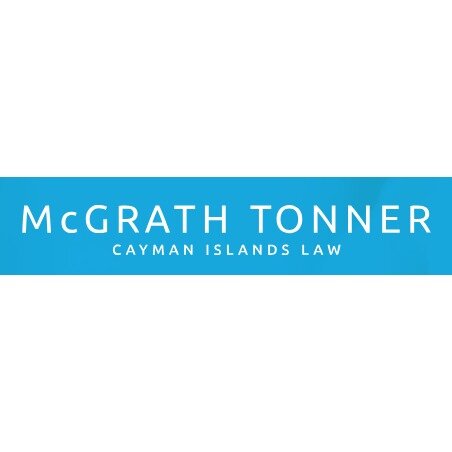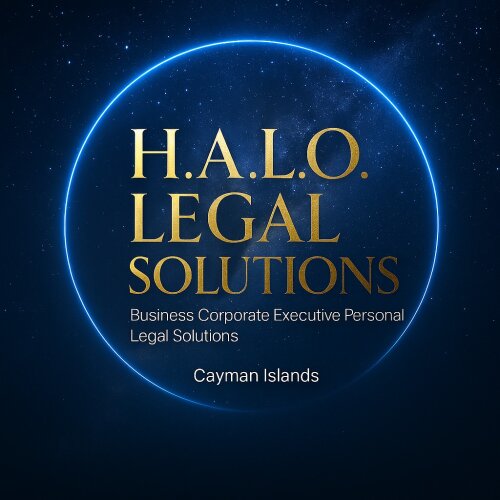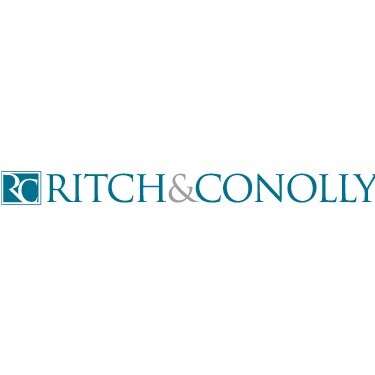Best Structured Finance Lawyers in George Town
Share your needs with us, get contacted by law firms.
Free. Takes 2 min.
List of the best lawyers in George Town, Cayman Islands
About Structured Finance Law in George Town, Cayman Islands
Structured finance plays a critical role in the global financial sector, and George Town, Cayman Islands is internationally recognized as a major hub for structured finance transactions. This area of law primarily deals with designing and implementing complex financial instruments that pool assets, transfer risk, and facilitate capital-raising for large or sophisticated entities. The Cayman Islands, with its well-established legal infrastructure, tax-neutral environment, and flexible regulations, attract a wide variety of structured finance transactions, including securitization, collateralized loan obligations (CLOs), asset-backed securities (ABS), and special purpose vehicles (SPVs).
Law firms in George Town regularly assist financial institutions, asset managers, and corporations with structuring transactions in compliance with both local and international standards. The effective management of these structures requires a comprehensive understanding of Cayman Islands law as well as broader financial regulations.
Why You May Need a Lawyer
Structured finance transactions are inherently complex and involve significant legal, financial, and regulatory considerations. You may require the assistance of a lawyer in George Town, Cayman Islands for the following scenarios:
- Establishment and structuring of special purpose vehicles (SPVs) or orphan companies for securitization transactions
- Providing legal opinions for cross-border or multi-jurisdictional deals
- Drafting and reviewing transaction documents, including trust deeds, offering memoranda, and security agreements
- Ensuring compliance with local, international, and anti-money laundering laws
- Advising on regulatory filings and ongoing disclosure obligations
- Assisting with restructuring or unwinding existing transactions
- Representing parties in disputes or enforcement actions related to structured finance products
- Navigating government approvals and liaising with local authorities or regulatory bodies
The participation of an experienced structured finance lawyer ensures that your transactions are not only legally sound but also commercially viable and compliant with evolving laws.
Local Laws Overview
George Town, Cayman Islands provides a supportive legal framework for structured finance. Some key aspects relevant to structured finance law include:
- The Companies Act: Establishes the rules for incorporating and managing companies, including exempted companies commonly used as SPVs in structured finance.
- The Mutual Funds Act: Regulates investment funds, which may be used in certain structured finance transactions.
- The Securities Investment Business Act (SIBA): Governs persons or entities conducting securities investment business within or from the islands.
- The Insolvency Law: Provides frameworks for company liquidations, restructurings, or receiverships, which are crucial during distressed financings or enforcement.
- Regulatory Oversight: The Cayman Islands Monetary Authority (CIMA) supervises regulated entities and transactions, ensuring compliance with local standards and anti-money laundering laws.
- Tax Neutrality: The Cayman Islands applies no direct corporate, capital gains, income, or withholding taxes, making it attractive for structured finance transactions.
Understanding these laws and how they interplay with international regulations is essential for anyone considering structured finance structures in George Town.
Frequently Asked Questions
What is structured finance in the context of the Cayman Islands?
Structured finance in the Cayman Islands refers to creating complex financial instruments, often using special purpose vehicles (SPVs), for securitization, risk management, and capital raising, usually in compliance with international standards.
Why are SPVs often used in structured finance in George Town?
SPVs are commonly used to isolate financial risk, facilitate securitization, and benefit from the regulatory and tax advantages of the Cayman Islands.
Do I need to be physically present in George Town to set up a structured finance vehicle?
No, most structures can be established remotely through qualified local service providers and legal counsel, who will assist with documentation and compliance.
What role does the Cayman Islands Monetary Authority (CIMA) play in structured finance?
CIMA regulates licensed entities and ensures compliance with local laws, particularly in areas of securities, mutual funds, and anti-money laundering rules.
Are there specific regulations for securitization transactions?
While the Cayman Islands do not have specific securitization laws, robust general company, insolvency, and securities laws provide a practical and reliable framework for such transactions.
How long does it take to set up an SPV?
It can take as little as a few days to establish an SPV in the Cayman Islands, depending on the complexity and the due diligence required.
What are the anti-money laundering requirements?
Entities must comply with the Cayman Islands’ comprehensive anti-money laundering regime, which includes client due diligence, ongoing monitoring, and record-keeping obligations.
Can foreign investors participate in structured finance in George Town?
Yes, the legal and regulatory environment in George Town is designed to facilitate participation by foreign investors and international financial institutions.
Is confidentiality maintained in structured finance transactions?
The Cayman Islands have strong confidentiality laws, though disclosure may be required under certain circumstances, for example, by court order or to comply with international information exchange agreements.
What legal documentation is typically involved in a structured finance transaction?
Common documents include offering memoranda, trust deeds, loan agreements, subscription agreements, security documents, and legal opinions.
Additional Resources
If you require further information or need to get started on a structured finance matter, consider consulting the following:
- Cayman Islands Monetary Authority (CIMA): Regulates financial services and provides compliance guidance
- Cayman Islands Department for International Tax Cooperation: Publishes information on tax transparency and compliance
- The Cayman Islands Government offers official information about company registration, specific regulatory filings, and updates on financial law
- Industry associations, such as the Cayman Islands Legal Practitioners Association or local finance industry bodies, which offer relevant guidance
Next Steps
If you believe you require assistance with a structured finance matter in George Town, Cayman Islands, consider taking the following steps:
- Conduct preliminary research and identify your specific needs or questions
- Reach out to one or more reputable law firms in George Town with expertise in structured finance law
- Request an initial consultation to discuss your transaction, objectives, and any regulatory or compliance concerns
- Prepare and organize any relevant documentation or information ahead of your consultation to maximize the effectiveness of your legal advice
- Remain proactive in understanding your transaction and the legal requirements outlined by your counsel
Engaging the right legal assistance ensures your structured finance transactions in George Town are efficient, secure, and comply with all relevant legal and regulatory requirements.
Lawzana helps you find the best lawyers and law firms in George Town through a curated and pre-screened list of qualified legal professionals. Our platform offers rankings and detailed profiles of attorneys and law firms, allowing you to compare based on practice areas, including Structured Finance, experience, and client feedback.
Each profile includes a description of the firm's areas of practice, client reviews, team members and partners, year of establishment, spoken languages, office locations, contact information, social media presence, and any published articles or resources. Most firms on our platform speak English and are experienced in both local and international legal matters.
Get a quote from top-rated law firms in George Town, Cayman Islands — quickly, securely, and without unnecessary hassle.
Disclaimer:
The information provided on this page is for general informational purposes only and does not constitute legal advice. While we strive to ensure the accuracy and relevance of the content, legal information may change over time, and interpretations of the law can vary. You should always consult with a qualified legal professional for advice specific to your situation.
We disclaim all liability for actions taken or not taken based on the content of this page. If you believe any information is incorrect or outdated, please contact us, and we will review and update it where appropriate.
















